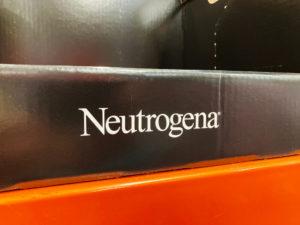
Notice: Morris Bart is no longer accepting new cases related to Benzene Exposure.
Studies have recently revealed that many brand-name sunscreens, including Neutrogena, Sun Bum, CVS Health, and Banana Boat, include traces of benzene. Benzene is a human carcinogen and has the potential to cause cancer depending on the level of exposure. Consumers using certain aerosol spray and lotion sunscreens should consider discontinuing their use, as several products have been recalled.
What Is Benzene?
Benzene is a naturally occurring chemical used in the production of plastics, resins, and other synthetic fibers and rubbers. While some level of exposure to this chemical found in tobacco smoke, gasoline, and industrial emissions is normal, prolonged exposure has been linked to certain cancers.
When exposed to the chemical, benzene causes cells not to work properly. In doing so, it can damage the immune system and decrease the production of white blood cells. If you have been exposed to benzene, you may experience these immediate signs and symptoms:
- Drowsiness
- Dizziness
- Headaches
- Tremors
Long-term health effects linked to prolonged benzene exposure include:
- Anemia due to damaged bone marrow and a decrease in red blood cells
- Excessive bleeding
- Compromised immune system
- Complications in birth and child development
- Leukemia
Has There Been a Recall on Sunscreens Including Benzene?
Johnson & Johnson has issued a voluntary recall for several Neutrogena and Aveeno brand sunscreen products, as they could potentially cause cancer based on the level and extent of exposure. According to Johnson & Johnson, those who have purchased these products should dispose of them immediately. Many other brands are expected to follow this lead and recall sunscreens with high Benzene content.
Researchers have asked U.S. regulators to pull many sunscreens off the market, including brands such as Coppertone, Banana Boat, and Neutrogena, based on evidence they contain another potential carcinogen, benzophenone. It is suspected that products containing the active ingredient octocrylene may also contain benzophenone, which is believed to disrupt estrogen levels in women.
What Issues Do the Benzene Sunscreens Cause?
When traces of Benzene are present in lotion and aerosol spray sunscreens, this means they will make direct contact with the skin of unsuspecting customers. It is already documented that prolonged exposure can be linked to leukemia and other cancers. Benzene is not an ingredient intentionally included in these products, so sunscreen manufacturers are investigating the potential source and future impacts of this contamination.
What Kind of Cancer Is Linked to Benzene Exposure?
The International Agency for Research on Cancer notes that Benzene exposure is linked to the following cancers:
- Acute Myeloid Leukemia
- Acute Lymphocytic Leukemia
- Chronic Lymphocytic Leukemia
- Multiple Myeloma
- Non-Hodgkin’s Lymphoma
Leukemia is a cancer of blood-forming tissues, which includes bone marrow. It impacts your white blood cells and compromises the body’s immune system. Symptoms may vary but typically include:
- Persistent fatigue and weakness
- Frequent and severe infections
- Easy bleeding and/or bruising
- Bone pain and tenderness
- Swollen lymph nodes
How Many Sunscreens Have Been Contaminated with Benzene?
Recent studies show that at least eight different sunscreens were tested and found to contain 2ppm or higher levels of Benzene. These include:
- Neutrogena Beach Defense
- Neutrogena Cool Dry Sport
- Neutrogena Invisible Daily
- Neutrogena Ultra Sheer
- Aveeno Protect + Refresh
- SunBum Cool Down Gel
- CVS Health After-sun Aloe Vera Soothing Spray
- Fruit of the Earth Aloe Vera Gel
According to Valisure, over 50 different sunscreens were tested and found to contain over 1ppm or higher levels of Benzene.





